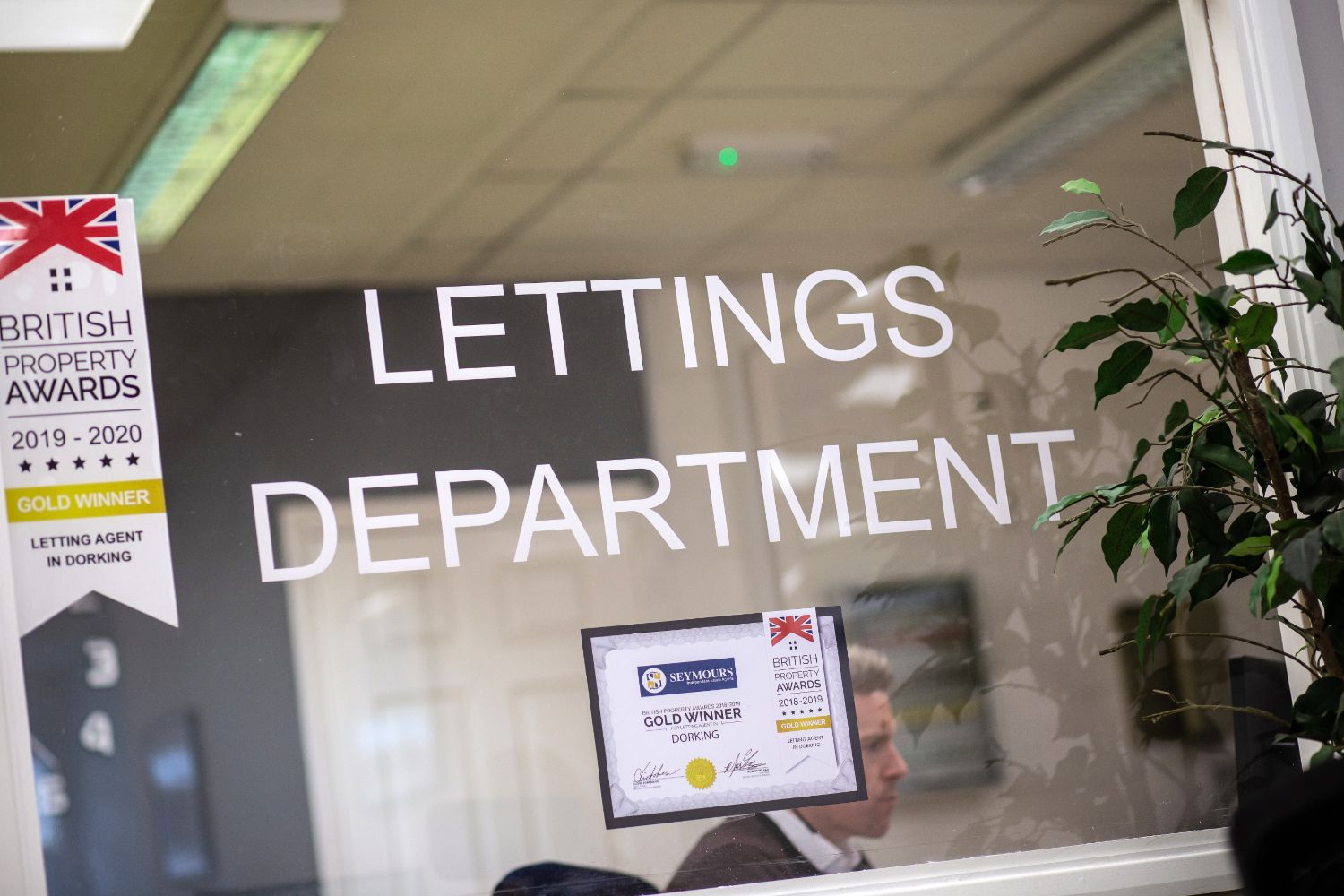Letting your property: The ultimate guide from Seymours
08 October, 2021
Good landlords generally attract good tenants – and keep them for longer too. But, to be a good landlord, you need to first understand your responsibilities and obligations. Letting your property takes consistent time and effort, but can provide you with an excellent additional income if managed correctly.
The proportion of UK renters has more than doubled in the past 20 years! With so many choices available to renters building a formidable reputation as a trustworthy landlord is crucial to ensure you are not isolating potential tenants from renting from you.
Whether you’re a first-time landlord or have let properties before, you will be governed by more than 145 pieces of legislation – it can be a whirlwind to get your head around! Particularly as the ever-changing regulations can mean you unwittingly break the law.
So, our Seymours letting agents have put together this comprehensive guide to ensure you can move forward successfully as a landlord. Plus, we’ve included some top tips to take your rental management to the next level and appeal to elusive high-quality tenants.

How much can I let my property for?
Pricing your property can be difficult – set it too high and you may isolate your ideal target audience, too low and potential tenants may be suspicious of the quality. There are a few key considerations before you begin pricing your rental:
- Who is your target market? Think about your property and critically consider who would best suit the rental – young families, students, single professionals? Create a buyer persona.
- Furnished or unfurnished? A blank canvas is far more appealing to most prospective tenants as they can make the property their own. However, if you are targeting students they are likely to prefer a furnished property as typically, they won’t have accumulated enough belonging to furnish a house.
- What are similar listings priced at? Set your rent accordingly based on properties in your current market. If too wildly varied you risk leaving your rental empty for a long period of time.
What are the legal responsibilities for landlords?
As we’ve already touched upon, when letting your property you are governed by up to 145 pieces of legislation. By law, you must ensure your property is fit for purpose and the safety of your tenants should be at the top of your priority list.
Use this handy checklist to ensure you are meeting all requirements:
1/ Perform a right to rent check on potential tenants.
2/ Provide a valid Energy Performance Certificate, gas safety certificate and a copy of the government ‘How to Rent’ guide to all tenants.
3/ Protect your tenant’s deposit in one of the government-approved deposit protection schemes.
4/ Ensure a gas safety check is done every 12 months by a Gas Safe registered tradesperson.
5/ Make sure furniture and electrical equipment meets safety standards
6/ Install a smoke alarm on each floor of your rental property and a carbon monoxide alarm in each room with a coal fire or wood-burning stove.
7/ Allow tenants to enjoy the property without interference, giving plenty of notice before a visit/inspection.
8/ Use the correct assured shorthold tenancy legal procedures when attempting to evict a tenant.
If you are still confused about legislation and what your obligations are as a landlord, it may be wise to speak to an industry professional. A letting agent will have a thorough, up to date understanding of government regulations and can handle a rental property with ease.

Do you need landlord insurance?
Your current buildings and contents insurer should be made aware of your intention to let the property, otherwise, you risk invalidating your policy. Do your research and opt for a specialist policy to protect against potential losses.
Whilst insurance can seem expensive and could therefore be seen as something you’d rather avoid spending on, the savings and compensation offered in the long term are invaluable.
The protection most policies will offer includes:
- Building insurance: for potential damage to the property’s structure or built-in features
- Loss of rent insurance: when you’re unable to rent out your property through no fault of your own (such as a flood or fire), this covers the potential rent lost
- Tenant default/rent guarantee insurance: covers any rent lost due to the tenant not paying
- Contents insurance: covers any contents that you have provided (tenants must get a separate policy for their belongings)
- Liability insurance: covers any legal costs if you are taken to court, e.g. if the property causes injury to a tenant or visitor

Letting your property: Top tips to be a good landlord
As well as the legal and moral obligations, you can go one step further to truly stand out and earn a reputation as a good landlord. Here are some of our top tips:
Fix problems quickly and professionally
Most tenants will appreciate that landlords have their own lives away from their rental properties. However, not all are so understanding or easygoing if you are slow to fix problems.
If you give your tenants the impression that you don’t care about their living conditions, you will almost certainly lose them as a tenant once their fixed term is up. Don’t let a lack of maintenance result in an empty rental.
You should have a list of trusted tradespeople you can confidently call upon to quickly address any problems bought to your attention. Acting when an issue arises will certainly not go unnoticed by your tenants.
Be willing to spend
If you have good tenants in your property, be willing to spend a little money when they make a request. Of course, this should be within reason but if they pay in full and are keen to stay long-term, redecorating or tidying up the garden is a small sum to pay.
Think about it this way, a tin of paint and a few flowers far outweigh the cost of re-marketing to new tenants!
All in the small details
If you’ve moved house before, whether you were buying or renting, you’ll know how stressful it can be. In fact, moving is considered one of the most stressful experiences any of us will go through.
So, anything you can do to streamline the process can make a great first impression. Perhaps you stock up the bathroom with soaps and toilet rolls so your tenants can avoid an extra supermarket trip on moving day, or you leave a bottle of wine and voucher for a takeaway so they can avoid cooking the first night. These little touches can make all the difference and will certainly be well-received, setting up your future relationship.
Communicate and be fair
There may be occasions in which your tenant faces a problem, and this could have a major impact on things such as paying rent. Whilst your tenants should stick to the terms of their agreement, as you stick to your obligations as a landlord, being compassionate and emphatic is a part of being a great landlord.
Allow your tenants to be transparent with you – should they be facing financial struggles, encourage them to communicate with you and together find a solution. The key is to remain approachable; whilst there is a formal agreement, your tenant shouldn’t fear or dread raising concerns with you.
- We have an article on the common causes of stress for landlords that you might like to read here.
- If you would like to understand your tenants rights, you can read more here.
Choose a good letting agent
A letting agent can handle all aspects of a rental property – from sourcing the tenants and collecting deposits to ongoing maintenance. Essentially, it can take the stress out of being a landlord as you hand over responsibility to a trusted letting professional to handle everything on your behalf.
When looking for a good letting agent, you should focus your search locally and enlist a renowned name in the area. Prospective tenants are far more likely to agree to a rental if they are confident in the ability of the letting agent, knowing they’ll have a smooth ride for the course of their tenancy.

Why choose Seymours as your letting agent?
Rental properties are a fantastic long-term investment but are not without their difficulties. Without due diligence, you can fall trap to these common pitfalls and thus, feel stressed and anxious about your rental property. But, with an independent letting agent by your side, you can reduce these common stresses and ultimately, enjoy your experience as a landlord.
With nearly 30 years in the letting market, we can provide you with property peace of mind. Not only are we able to provide you with support, expertise and our experience but we can guarantee you a high calibre of tenants – one of the main stresses landlords face.
Let your property with the experts today: choose Seymours Letting Agents.
If you’d like free market advice or need an instant property valuation you can trust, get in touch with the team at Seymours using this contact form, or call us one of our 20 dedicated branches and departments here.